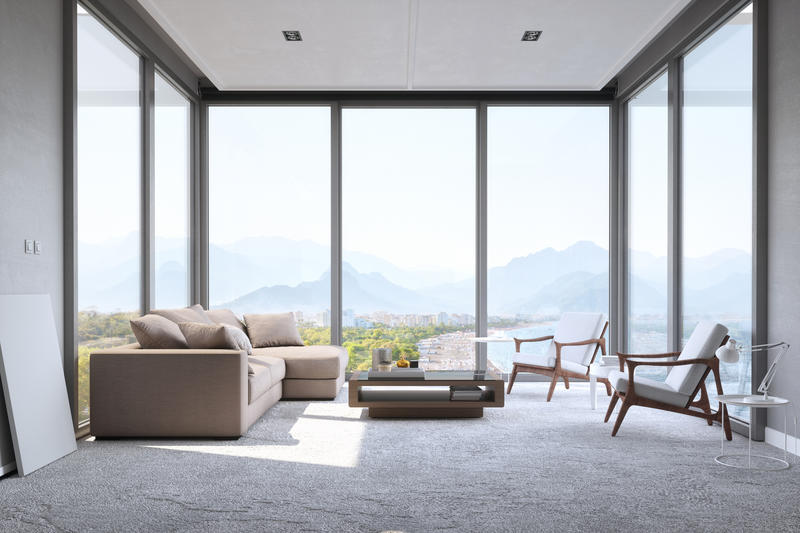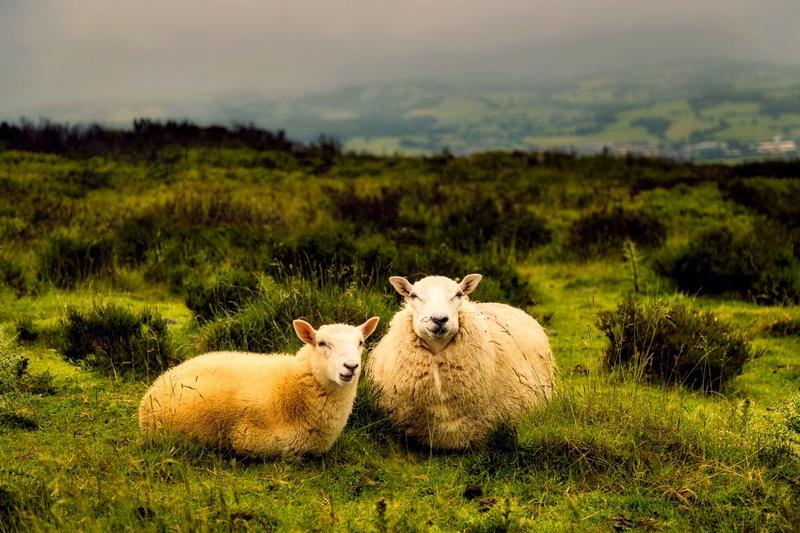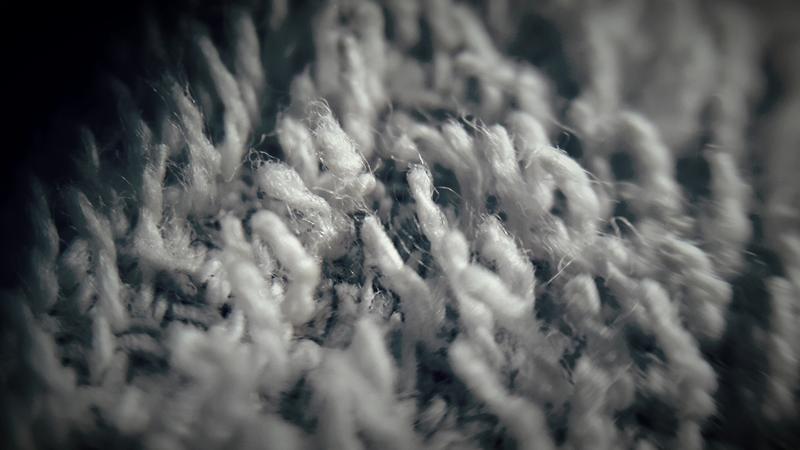Pros and Cons of Wool Carpets
This guide discusses the pros and cons of wool carpets in more detail to help you assess whether this is the right type of carpet for your business or home. If you're looking to buy wool carpets, please see our wool twist pile carpet and luxury carpets product pages.
Wool carpets have had a reputation for quality and durability for hundreds of years. Synonymous with luxury, they remain an incredibly popular carpet of choice for homeowners and in the housebuilding and hospitality sectors.
Wool as fibre can withstand pressure, has a beautiful aesthetic and excellent appearance retention properties. It is also incredibly long-lasting when properly cared for, making it an excellent investment when it becomes time to replace existing carpets. If you’re considering the purchase of a new carpet, wool is definitely a viable option.
However, to truly understand whether wool carpet is the best choice for you, let’s explore the different types of wool carpet available and the strengths and weaknesses of this versatile flooring option.

Types of Wool Carpet
Wool carpets are primarily available in two different formats: 100% wool carpet or 80/20 wool mix carpets. Both blends can then be produced in both broadloom format or as carpet tiles, providing flexibility in installation method depending on where and how the wool carpets are being used.
100% Wool Carpet / Natural Wool Carpet
As humans, we’ve been using wool to make floor coverings for hundreds, if not thousands of years, ever since we first discovered how to shear soft, fluffy wool from sheep herds. 100% wool carpet (also called 100 wool carpet or natural wool carpet) refers to carpets woven from this pure resource.
The very best wool for 100% wool carpet production is 'string' wool. This type of wool can be found on sheep breeds located in Britain and New Zealand and many carpets contain both New Zealand wool and British wool.

British wool is bulky, tough and offers a unique texture whilst New Zealand wool is a lot softer and whiter, which makes this the ideal material for plan or lighter shade ranges. New Zealand Merino wool is often thought to be of higher quality, however, sheep breeds from all over the world can produce wool of equal quality, and often with their own unique characteristics.
Beyond sheep wool, natural wool carpets can also be produced from the fur of other animals with similar hairy coats such as llamas, alpacas, goats and even camels!
80/20 Wool Carpet / Wool Mix Carpet
Wool carpet has an intrinsic strength and doesn't necessarily need any other fibre to improve its performance, but in certain circumstances and for particular reasons it is often blended with other fibres, primarily man-made ones. These hybrids are referred to as 80/20 wool carpets, also called wool mix carpets or wool blend carpets.
Manufacturers may choose to use synthetic materials in the yarn for various reasons such as to improve fibre flexibility, stain resistance and durability, or to facilitate dyeing and printing.
Improving on the existing properties of wool carpets by adding synthetic fibres has made 80/20 wool carpets increasingly popular. A more durable carpet with the same aesthetic and ergonomic properties as 100% wool is a sound investment for any home or business owner.

Advantages of Wool Carpet
Whether you’re considering 100% natural wool carpet or an 80/20 wool mix, wool carpets have a wide range of advantages. Below, we’ll discuss a few of the pros of wool carpets.
Durability and Strength
Wool provides superb performance with its long-lasting durability; it has a natural crimp, robustness and elasticity which means it can offer a 'bounce-back'. As such pile compression, tracking marks and shading are significantly reduced. This is why wool carpets are able to maintain such a good appearance over many years, if not decades.
Resistance to Dirt and Soiling
Wool is a completely natural fibre containing natural oils. These oils are resistant to dirt and will repel other oil-based soiling. Plus, as wool is an opaque fibre, dirt will be harder to see so your carpet will naturally appear clean. For the most part, all you will need to keep your carpet looking good is regular vacuuming.
Comfort and Warmth
There's nothing more luxurious than the comfort and warmth of a wool carpet. The wool acts as an insulator keeping your house warm, making it an energy efficient investment and a pleasure to have during the cold winter months. Wool will also absorb sound and will cushion the home against echoes and noise from the family.
Fire Resistant and Inflammable
Wool is naturally fire resistant and has an extremely slow ignition rate. As such, wool carpets are an incredibly safe material to use for carpeting in the home or commercial setting. Should a fire break out, the carpet fibres will melt rather than burn slowing, if not preventing, the spread of the fire.
Fall Friendly
The natural coil and softness of wool carpets will act as a cushion, preventing any serious injury from falls, whether from young children or older individuals. This is enhanced further when wool carpets are installed over a good quality underlay, which can provide further fall protection, amongst other benefits.
Hypoallergenic
The minute scales of the wool's fibres will hold fine dust until it is vacuumed, which will minimise any floating particulate in the atmosphere. The use of a good quality vacuum cleaner will then remove dust and dirt before it can cause irritation. Furthermore, wool is a natural 'smart' fibre and can help to create a balanced atmosphere in any home, meaning it also has the ability to absorb humidity in the air and will then release it back when the atmosphere becomes dry.
Natural and Sustainable
Wool grows on sheep or similar animals who require regular shearing. Shearing is a crucial part of caring for these animals and as such there is a fresh supply of wool available every year for the carpet industry making the material 100% natural and fully sustainable.
Biodegradable Material
Wool is biodegradable in soil, producing nitrogen, sulphur, carbon dioxide and water which are all plant nutrients. This makes 100% wool carpets an excellent choice for flooring as we become more focussed on the protection and preservation of the natural world.
Disadvantages of Wool Carpet
Naturally, nothing is perfect and there are some disadvantages to purchasing either natural or wool mix carpets which we’ve listed below.
Initial Cost
Whilst wool as a material is cheap and abundant, the high cost of wool carpets arises from the processing and production of a more ‘luxury’ product, as well as the cost to clean and maintain the product over the course of its lifespan. However, as well cared for wool carpets are likely to survive much long than other materials, this cost will even out in comparison to regularly replacing other carpets.
Stain Resistance
Although wool is naturally resistant to soiling and oil-based liquids, it is prone to being stained by non-oil-based liquids, especially those with strong pigmentation such as wine or coffee. The colour of foreign bodies will stick to the wool fibres and can be difficulty to remove, if not impossible, so treat your wool carpet with care.
Absorbency
Wool carpets are highly absorbent, and whilst this can be a good trait for removing humidity from the air, it’s not so good when it comes to spills or regular exposure to water, such as in or near a bathroom. Larger volumes of water can saturate wool fibres and over time can result in mildew forming, causing discolouration and an undesirable smell.
Chemical Resistance
Alkaline chemicals with a pH greater than 9.5 can negatively affect wool carpets with even just short exposure unless fully cleaned or neutralised. Strong chemicals cause the fibres to harden, lose their colour and possible begin to dissolve, essentially ruining your carpet. This makes it difficult to find a regular cleaning solution that can deal with stains from soiling, though professional carpet cleaners should be able to recommend products with a neutral pH.
Light Fastness
Another disadvantage of wool carpets is that they are sensitive to sunlight. Extended exposure to bright sunlight can cause the colours in the fibres to fade, spoiling the appearance of the carpet. A little sunlight every now and then will be fine, but wool carpets laid in an area that has constant sunlight all-day long are likely to lose their quality of appearance.

Should you Buy a Wool Carpet?
Wool is the classic luxury carpet fibre holding some distinct qualities to differentiate it from other fibres. It is completely natural, comfortable, fire-resistant, durable and it's even sustainable!
Although it will cost a little more and requires further care and attention than other 100% synthetic alternatives, the advantages of purchasing wool carpet will far outweigh the extra cost.
Whether for a family home, luxury accommodation or for another high-end commercial specification, when specified, installed and maintained correctly wool carpets should always meet or even exceed expectations.
Browse Birch Carpets fabulous selection and order your free samples of wilton wool carpets, twist pile carpets, luxury carpets and carpet tiles, or get in touch with us today to chat with one of our specialist contract carpet consultants.